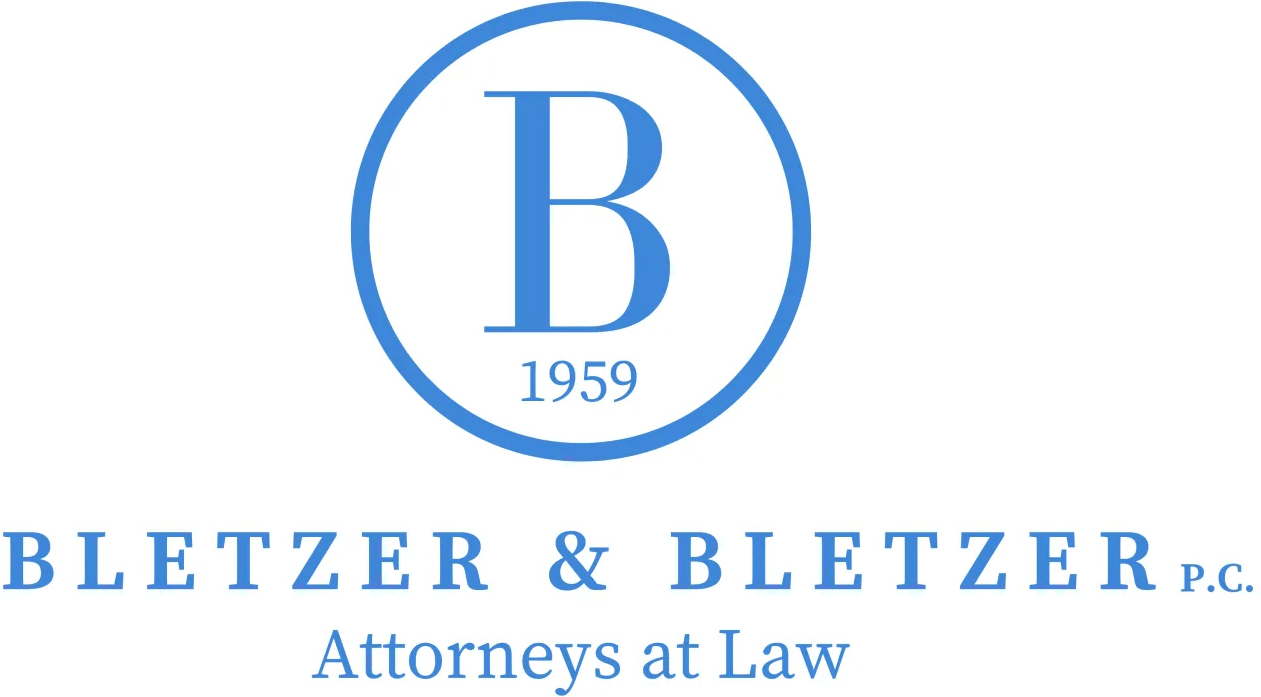A Skilled And Compassionate Ally In Divorce And Family Law Matters
With experience in many aspects of family law, the skilled attorneys at Bletzer & Bletzer, P.C., in Brighton, Massachusetts, have provided insightful and needed guidance to clients for decades. We will answer your questions on matters such as divorce, legal separation, child custody, child support, spousal support, the division of assets and nontraditional family issues.
As a diverse group of attorneys with diverse backgrounds, we are more approachable than many law firms. Because of this, clients can relate to us and trust us. That’s important in family law and divorce dealings. We want to help you protect your future and secure the assets you rightfully deserve.

Divorce and Separation
Knowing emotions are high, the attorneys at Bletzer and Bletzer, P.C. will guide you through the legal complexities of a divorce or separation as a calm yet strong advocate on your behalf. We consider the relationship you have with your children paramount, and we will advocate zealously to protect it. We will ensure that your financial future is bright, and are experienced in child support, spousal support, asset division, small business valuation, and pension and retirement division. When necessary, we provide representation in restraining orders and criminal matters to protect you and your rights.
Post Judgment Modifications and Contempt
When your former partner is not following the terms of a judgment or agreement, or circumstances in your life have changed and you find that a judgment or agreement is no longer fair, we can assist you in navigating the court system to get to the outcome best for you.
Custody and Visitation
As modern parenting has changed, so have custody and parenting time arrangements. Do not let yourself be pressured into a parenting arrangement without discussing your options with our experts. We are well versed in many aspects of child-related disputes, including parental alienation, removal, child support, and college tuition expenses.
Paternity Actions
Coming Soon
Prenuptial and Postnuptial Agreements
Massachusetts Prenuptial Agreement
Why would I need a Prenuptial Agreement?
If you don’t have a prenuptial agreement, the laws of divorce of the state you reside in will apply to your situation if you get a divorce. Similarly, the laws of inheritance in the state you reside in will apply if you do not have a will or a trust. If you are uncomfortable in allowing the state to decide these very important issues, you should consider a prenuptial agreement, a will, trust, health care proxy, and a durable power of attorney.
Prenuptial agreements are created prior to marriage to address a variety of issues including but not limited to the following:
- Separating out each parties assets, debts, and property rights before marriage
- Protecting Children’s Interest from previous marriages
- Distribution of your estate based on your wishes upon death
- Alimony
- Child Support
- Health Insurance
- Life Insurance
Postnuptial Agreement Laws in Massachusetts
What this means for you
If you and your spouse find yourselves in a difficult or stressful financial situation, but wish to remain married; or if you contemplate separation at some point down the road, a postnuptial agreement may be a possible step forward. With regards to postnuptial agreements, it is so important for each spouse to obtain separate legal counsel to carefully explain the pros, cons, repercussions, and realities of the situation, and to carefully negotiate any final agreement.
Contact Bletzer & Bletzer, P.C. today to discuss your specific situation and whether a postnuptial agreement may be the right decision for you.
Conservatorships & Guardianships
Massachusetts Conservatorship and Guardianship Attorney
If someone loses the capacity to make health care and financial decisions, and that individual has failed to previously establish careful advance directives (including but not limited to health care proxy and durable power of attorney), then his or her loved ones must resort to the probate courts to seek a conservatorship or guardianship.
Guardianship
A guardianship is a probate court proceeding in which someone petitions the court to be appointed guardian over someone else (that person is called the “Protected Person”). The guardian would have the authority to make health care decisions for the protected person. A probate court will not treat this petition lightly – in Massachusetts all adults are presumed to have capacity to make their own health care decisions. Because of the complexity of the law and the nature of the petition, a guardianship petition can take weeks or months to pass successfully through the courts.
A guardianship proceeding is by its nature a very public proceeding. Many people do not want their private business divulged in the public courts of MA. It is also a very expensive proceeding because it involves filing fees, attorney’s fees, publishing fees, constable fees, etc.
Once the court appoints a guardian over a protected person, the guardian’s authority is limited. If the guardian wishes, for instance, to authorize anti-psychotic drugs for the protected person, the guardian must seek additional special authority from the court. That requires further cost, time, stress and uncertainty.
In addition, a guardian must regularly report to the court in writing for the duration of the guardianship, which is often the full lifetime of the protected person.
Because of the considerable time and expense involved with guardianship, most people – if given the opportunity – would avoid guardianship altogether by working with an Elder Law Attorney to prepare advance directives long before anyone loses the capacity to make their own decisions.
Conservatorship
A conservatorship is a probate court proceeding in which someone petitions the court to be appointed conservator over someone else (that person is called the “protected person”). The conservator would have the authority to make financial decisions for the protected person. A probate court will not treat this petition lightly – in Massachusetts all adults are presumed to have capacity to make their own financial decisions. Because of the complexity of the law and the nature of the petition, a conservatorship petition can take weeks or months to pass successfully through the courts.
A conservatorship proceeding is, by its nature, a very public proceeding. Many people do not want their private financial business divulged in the public courts of Massachusetts. It is also a very expensive proceeding because it involves filing fees, attorney’s fees, publishing fees, Guardian ad Litem fees, constable fees, etc.
Once the court appoints a conservator over a protected person, the conservator’s authority is limited. For example, if the protected person requires nursing home care, all of his or her assets are countable during the Medicaid/MassHealth process. If the conservator wishes to preserve and protect those assets for the benefit of the spouse at home, the conservator must petition the court for special authority. That requires further cost, time, stress and uncertainty. When appearing before a judge, one can never know whether that judge would agree that the protected person should be able to protect his or her assets – there is always the risk that the judge might feel those assets should be spent down entirely on nursing home costs – even if that is against the wishes of the protected person.
In addition, a conservator must regularly report to the court in writing for the duration of the conservatorship, which is often the full lifetime of the protected person. Each report costs more money and takes more time.
Because of the considerable time and expense involved with conservatorship, and because of the great risk to asset protection goals, most people – if given the opportunity – would avoid conservatorship altogether by working with an Elder Law Attorney to prepare advance directives long before anyone loses the capacity to make their own decisions.
Ultimately, however, a simple durable power of attorney is often insufficient to achieve the asset protection goals of the individual. That POA must contain specific and highly specialized language to ensure that their appointed agent and take advantage of every possible strategy to preserve and protect assets if the individual becomes incapacitated. Most POA’s fall far short of that standard so you must work with a Qualified Elder Law Attorney who practices everyday in the areas of asset protection and Medicaid/MassHealth and who knows exactly what authority must be listed in the POA.
At Bletzer & Bletzer, P.C., our experienced lawyers help families:
- Separate out each parties assets, debts, and property rights before marriage
- Protect Children’s Interest from previous marriages
- Distribution of your estate based on your wishes upon death
- Alimony
- Child Support
- Health Insurance
- Life Insurance
Every situation is unique and having an experienced lawyer who understands your issues can save considerable time and expense. Bletzer & Bletzer, P.C. offers a complimentary initial consultation to determine how we can assist you.
